Filter by
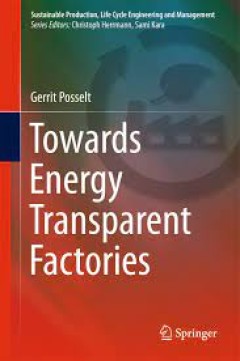
Towards Energy Transparent Factories
This monograph provides a methodological approach for establishing demand-oriented levels of energy transparency of factories. The author presents a systematic indication of energy drivers and cost factors, taking into account the interdependencies between facility and production domains. Particular attention is given to energy flow metering and monitoring. Readers will also be provided with an…
- Edition
- 1
- ISBN/ISSN
- 978-3-319-20868-8
- Collation
- XXXII, 284
- Series Title
- Sustainable Production, Life Cycle Engineering and Management
- Call Number
- -
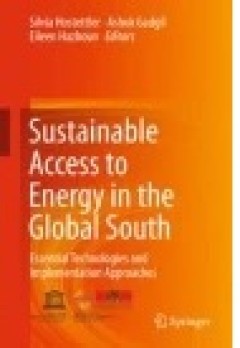
Sustainable Access to Energy in the Global South
Presenting the best papers of the 3rd EPFL-UNESCO Chair Conference on Technologies for Development, this publication offers a valuable collection of innovative case studies exploring access to energy and renewable energy technologies in the Global South. It investigates the key determinants for successfully providing energy to resource-poor communities and examines a wide range of technologies …
- Edition
- -
- ISBN/ISSN
- 978-3-319-20209-9
- Collation
- XVIII, 254
- Series Title
- -
- Call Number
- -

Active Control of Magneto-hydrodynamic Instabilities in Hot Plasmas
During the past century, world-wide energy consumption has risen dramatically, which leads to a quest for new energy sources. Fusion of hydrogen atoms in hot plasmas is an attractive approach to solve the energy problem, with abundant fuel, inherent safety and no long-lived radioactivity. However, one of the limits on plasma performance is due to the various classes of magneto-hydrodynamic inst…
- Edition
- Ed. 1
- ISBN/ISSN
- 978-3-662-44222-7
- Collation
- XV, 342
- Series Title
- Springer Series on Atomic, Optical, and Plasma Physics
- Call Number
- 539 ACT a

A Thermochemical Heat Storage System for Households: Combined Investigations …
The book offers a comprehensive report on the design and optimization of a thermochemical heat storage system for use in buildings. It combines theoretical and experimental work, with a special emphasis on model-based methods. It describes the numerical modeling of the heat exchanger, which allows recovery of about two thirds of the waste heat from both solar and thermal energy. The book also p…
- Edition
- Ed. 1
- ISBN/ISSN
- 978-3-319-41228-3
- Collation
- XXIII, 202
- Series Title
- Springer Theses
- Call Number
- 541.36 LEL t

A Study of the Fukushima Daiichi Nuclear Accident Process: What caused the co…
Written by an expert in the field, this book is perfect for those who would like to know what happened at the Fukushima Daiichi Nuclear Power Plant. Part 1 of the book studies how core melts occurred in Fukushima Daiichi units 1, 2, and 3, respectively, based on evidence from the Three-Mile Island core melt accident and fuel behavior experiments performed in the 1970s under the cooperation betw…
- Edition
- Ed. 1
- ISBN/ISSN
- 978-4-431-55543-8
- Collation
- XVI, 231
- Series Title
- -
- Call Number
- 621.38 ISH s

A Solar Car Primer: A Guide to the Design and Construction of Solar-Powered R…
This exciting primer on Solar Racing literally starts from the ground up, describing how the interactions of a vehicle with its environment circumscribe its ultimate success, from aerodynamics to resistance and propulsion. By demonstrating how to mathematically model these underlying physical phenomena, the author helps solar racing competitors carefully select key characteristics of the vehicl…
- Edition
- -
- ISBN/ISSN
- 978-3-319-17494-5
- Collation
- XXV, 466
- Series Title
- -
- Call Number
- 620.1 THA s
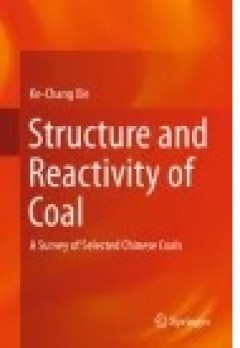
Structure and Reactivity of Coal
This book provides insights into the development and usage of coal in chemical engineering. The reactivity of coal in processes such as pyrolysis, gasification, liquefaction, combustion and swelling is related to its structural properties. Using experimental findings and theoretical analysis, the book comprehensively answers three crucial issues that are fundamental to the optimization of coal …
- Edition
- 1
- ISBN/ISSN
- 978-3-662-47337-5
- Collation
- IX, 413
- Series Title
- -
- Call Number
- -
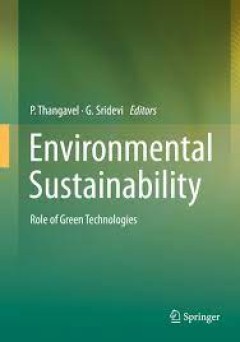
Environmental Sustainability Role of Green Technologies
Covers different categories of green technologies (e.g. biofuels, renewable energy sources, phytoremediation etc.,) in a nutshell -Focuses on next generation technologies which will help to attain the sustainable development -The chapters widely cover for students, faculties and researchers in the scientific arena of Environmentalists, Agriculturalists, Engineers and Policy Makers The World Env…
- Edition
- -
- ISBN/ISSN
- 978-81-322-2056-5
- Collation
- 26 b/w illustrations, 32 illustrations in colour
- Series Title
- -
- Call Number
- -
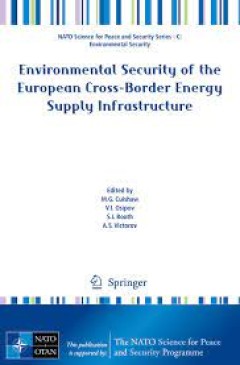
Environmental Security of the European Cross-Border Energy Supply Infrastructure
The current volume provides examples of how environmental hazards such as landslides, earthquakes, mountain processes, cold climate processes and tidal flows and currents can affect the energy supply infrastructure. In times of uncertainty, the security of the European cross-border energy supply infrastructure, such as pipelines, has great importance. Whilst the potential effects of political d…
- Edition
- -
- ISBN/ISSN
- 978-94-017-9538-8
- Collation
- 24 b/w illustrations, 74 illustrations in colour
- Series Title
- -
- Call Number
- -
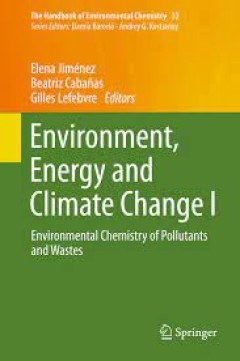
Environment, Energy and Climate Change I Environmental Chemistry of Pollutan…
This volume offers a comprehensive overview of advanced research in the field of environmental green chemistry for air, soil and water pollutants, and presents emerging technologies on the chemical treatment of polluted sites and wastes. The 15 chapters, prepared by internationally respected experts, address the following topics: (1) monitoring of indoor and outdoor air pollutants; (2) atmosphe…
- Edition
- -
- ISBN/ISSN
- 978-3-319-12907-5
- Collation
- 6 b/w illustrations, 44 illustrations in colour
- Series Title
- -
- Call Number
- -
 Computer Science, Information & General Works
Computer Science, Information & General Works  Philosophy & Psychology
Philosophy & Psychology  Religion
Religion  Social Sciences
Social Sciences  Language
Language  Pure Science
Pure Science  Applied Sciences
Applied Sciences  Art & Recreation
Art & Recreation  Literature
Literature  History & Geography
History & Geography